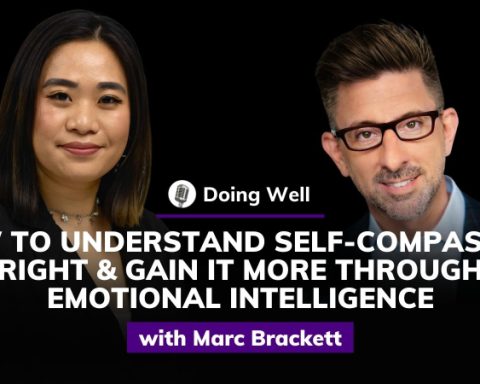Emotions are complex reaction patterns that can play an important role in many different areas of human behaviors and relationships. Emotions can influence how you interpret and respond to your surroundings and can trigger, motivate, and direct your actions, choices, and decisions.
In the book Discovering Psychology by Don and Sandra Hockenbury, an emotion consists of three distinct components: a subjective experience, a physiological response, and a behavioral or expressive response.
First, each person’s experience of an emotion is highly subjective. People can also experience a blend of emotions simultaneously. Second, emotions cause physiological arousal. For example, an accelerated heart rate or rapid breathing can occur in response to intense emotion. Finally, the behavioral component refers to how someone expresses and communicates emotions depending on their personality and societal norms.
The behavioral component signals others how you feel. When you interact with other people, you witness a variety of behavioral responses in you and others, including facial expressions, voice intonation, and gestures. These emotional expressions transmit valuable information. Communicating emotions and interpreting the behavioral responses of those around you thus play a central role in social communication and maintaining social relationships. However, this is not the whole picture.
The ability to understand and manage your emotional experiences plays a central role in interpersonal functioning and maintaining good relationships. The way you manage your emotional expressions has social consequences.
A study found that expressive suppression, or the process of inhibiting emotional expressions, disrupts communication, prevents the development of social bonds, and hinders the growth of existing relationships while increasing stress levels in the parties involved.
Moreover, how you express your emotions is also related to your well-being. Research shows individuals who suppress their emotional responses are more likely to report less satisfaction with their life, lower degrees of self-esteem, and less optimism.
Levels of emotional intelligence
The American Psychological Association defines emotional intelligence as “the ability to process emotional information and use it in reasoning and other cognitive activities.”
Moreover, Salovey & Mayer (1990) propose that this type of intelligence is a subset of social intelligence that involves a set of skills to identify, monitor, and harness one’s own as well as others’ emotional states to regulate behaviors.
Furthermore, Salovey & Mayer (1997) suggest that there are four different levels of emotional intelligence:
- Perception and appraisal of emotions: The first level involves reading emotional information accurately and identifying and expressing your emotions and those around you.
- Ability to use emotions in thinking: This level requires using emotional experiences to promote thinking and allowing emotions to direct attention in productive ways.
- Understanding and analyzing emotions: This refers to the ability to describe and label emotions, including complex emotions, and recognize simultaneous feelings.
- Reflective regulation of emotions: The last level is managing emotions reflectively in oneself and others, and being able to respond appropriately to promote emotional and intellectual growth.
Key clusters of competencies
According to Daniel Goleman, emotional intelligence can be defined as an array of skills. There are four key clusters of competencies to it:
- Self-awareness is the ability to recognize your own emotions, develop an awareness of your limits and strengths, and be self-confident.
- Self-regulation can be actualized through emotional self-control or keeping disruptive emotions under control, transparency or knowing your values and acting accordingly, or having adaptability and optimism.
- Social awareness can be heightened by practicing active listening and empathizing or sensing other people’s feelings, perspectives, and concerns.
- Social skills encompass a wide range of interpersonal skills that play a crucial role in relationship management, including conflict management, building bonds, working in a team, and communication skills.
In conclusion
Studies suggest that emotional intelligence helps you be perceived more positively by others. People with higher emotional intelligence report a greater sense of social competence, interpersonal sensitivity, and prosocial tendencies. Emotionally intelligent people can use their skills in perception and understanding of both their own emotions and the emotions of others to promote growth.
To take your reading on emotional intelligence further, check out the Wellbeing Science Labs. Based on the research of the Institute for Life Management Science, the lab produces courses, certifications, podcasts, videos, and other learning materials. Visit the Wellbeing Science Labs today.
Photo by Stefan Keller from Pixabay



